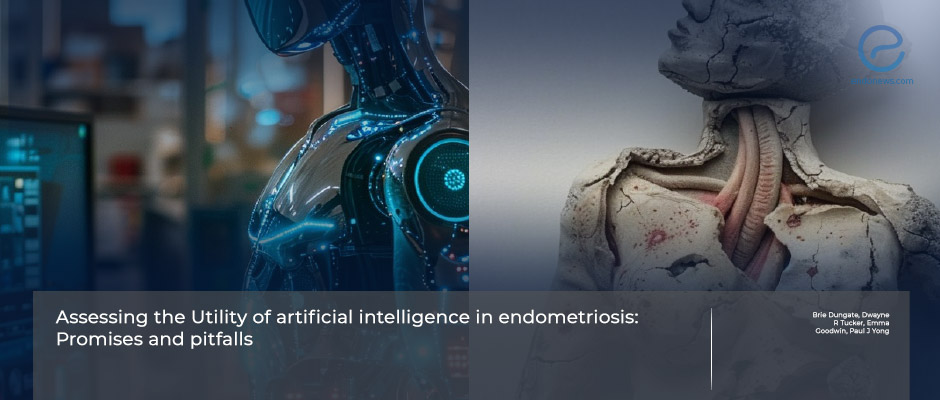Artificial intelligence and Endometriosis
Aug 30, 2024
Benefits and limitations of AI in assessing endometriosis.
Key Points
Highlights :
- The diagnosis of endometriosis could be delayed an average of 8–12 years, and many patients experience debilitating pain with other detrimental symptoms without proper remedies.
- Among recent technological developments in health issues, there has been wide acceptance of Artificial Intelligence (AI).
Importance:
- If artificial intelligence is effectively integrated, it could significantly enhance the clinical understanding and treatment of endometriosis.
What's done here :
- This is a review searching the current status of endometriosis diagnosis and treatment, emphasizing the future of AI alleviating some pitfalls regarding this disorder.
Main key features :
- AI applications have succeeded in reducing diagnostic delays, and healthcare costs, and providing patients with more treatment modalities in endometriosis.
- AI in healthcare research has limitations related to sample size, data quality, and non-representative samples, hence there is a need for increased scrutiny and accountability.
Limitations:
- Since this is a narrative review, a comprehensive analytical assessment of AI in endometriosis management could not be made.
Lay Summary
Academicians led by Dr. Yong from Vancouver, Canada, have published a timely review on the utility of Artificial Intelligence (AI) in endometriosis. This review appeared in a recent issue of the BMJ Woman’s Health.
As a well-known issue, endometriosis poses important obstacles in terms of diagnosis and treatment so that diagnosis could be delayed an average of 8–12 years, and many patients suffer from pain and other nasty symptoms without proper management.
AI is currently being applied to drug development, assisting clinicians in imaging studies, and supporting the discovery of new genetic variants underlying diseases, among other applications.
When AI is effectively integrated, it could enhance the clinical understanding and treatment of endometriosis, potentially helping to prevent many of its associated complications."
Current AI applications in endometriosis include enhancing diagnostic ultrasound imaging and analyzing treatment responses. By reducing diagnostic delays, lowering healthcare costs, and providing more treatment options, we can ultimately improve the quality of life of these patients.
The full potential of AI for application in endometriosis could be evaluated via guidelines put forward by the EQUATOR network, the NIH, the WHO, ... and local governing bodies.
Research Source: https://pubmed.ncbi.nlm.nih.gov/38686828/
Endometriosis artificial intelligence EQUATOR

